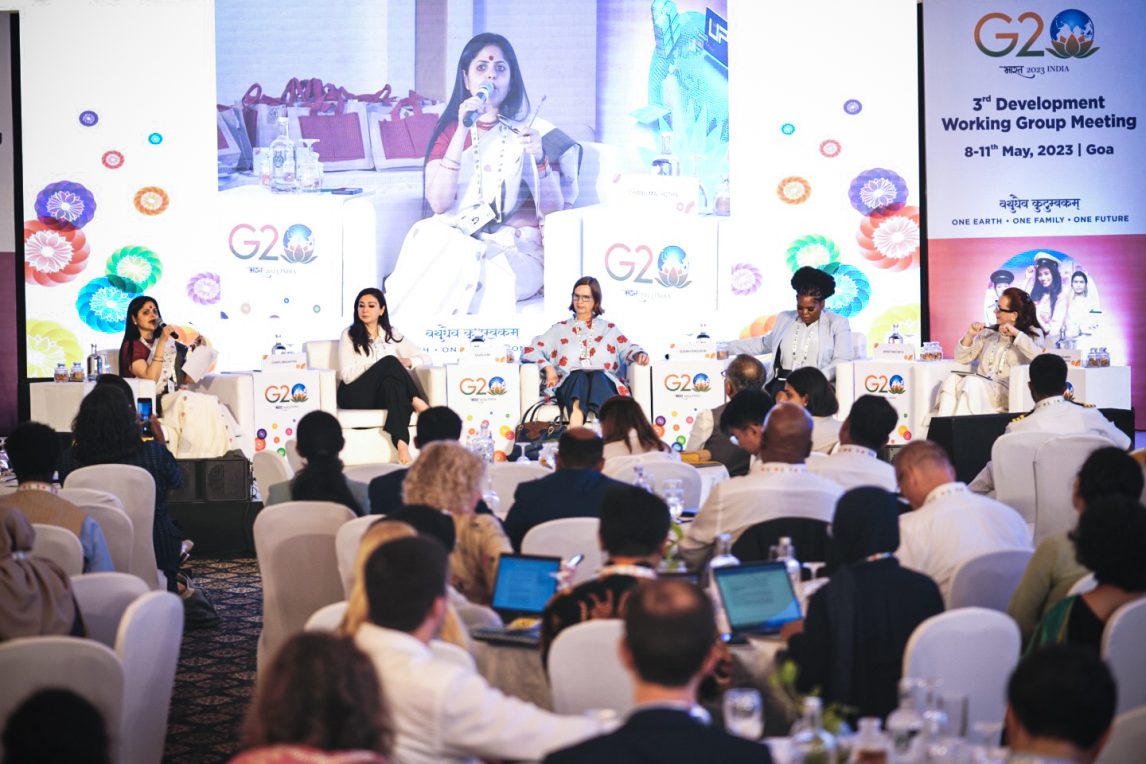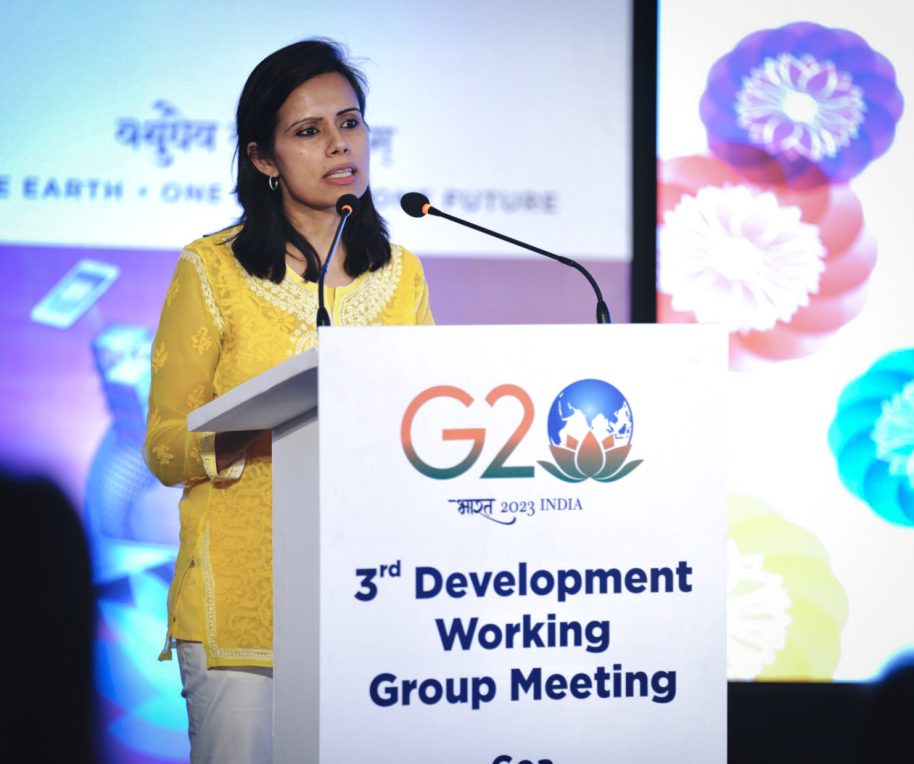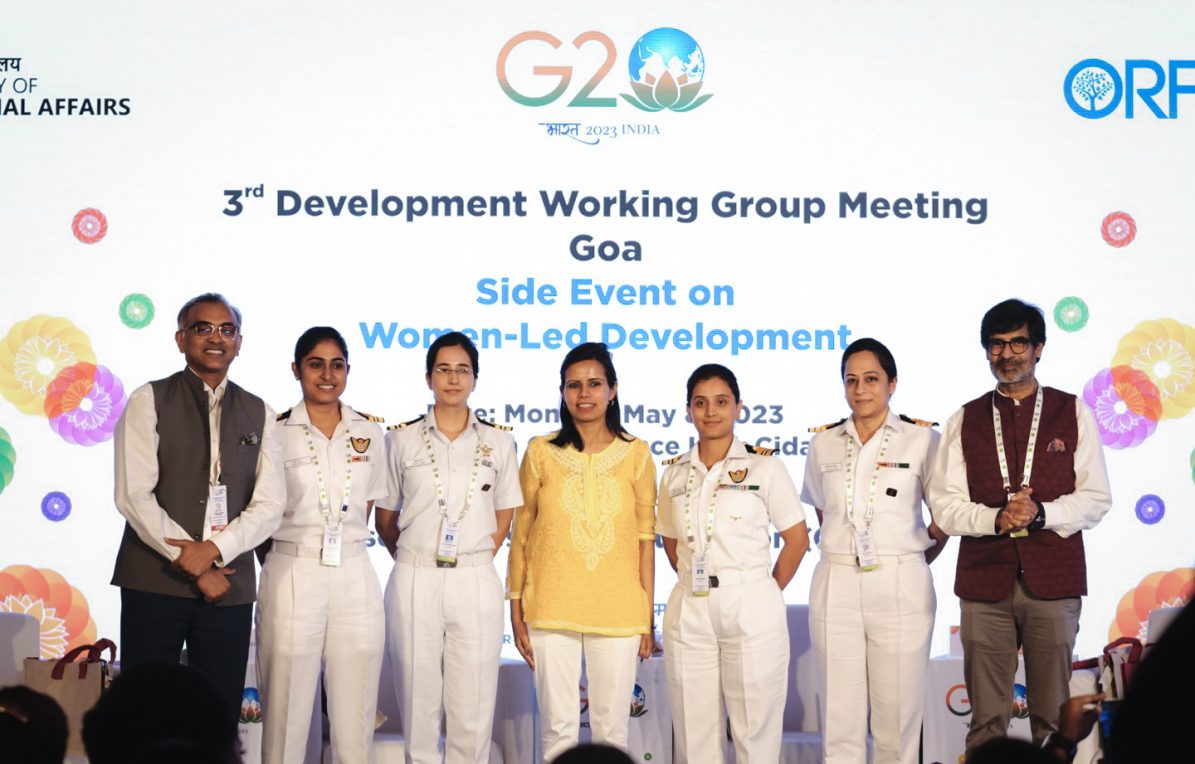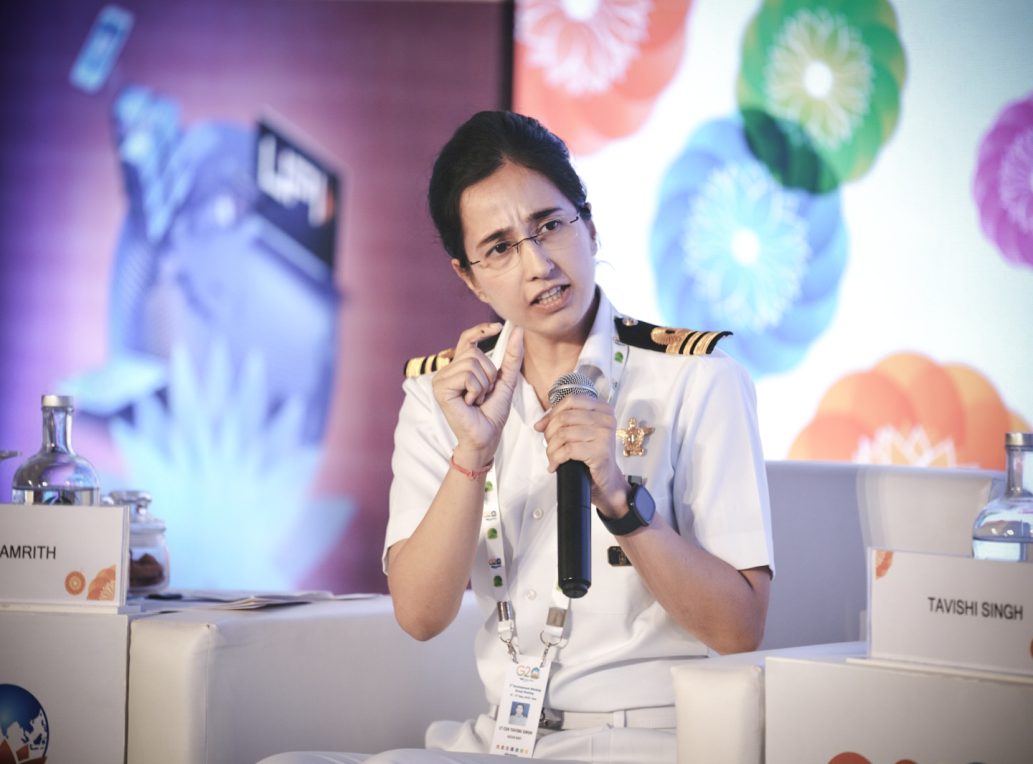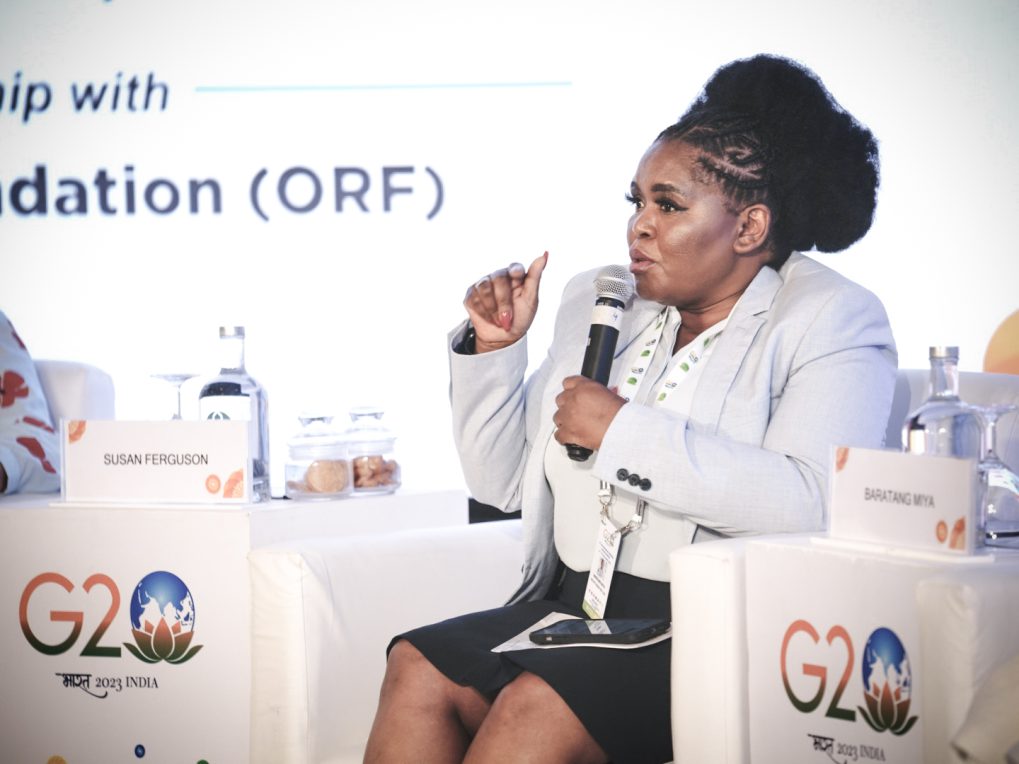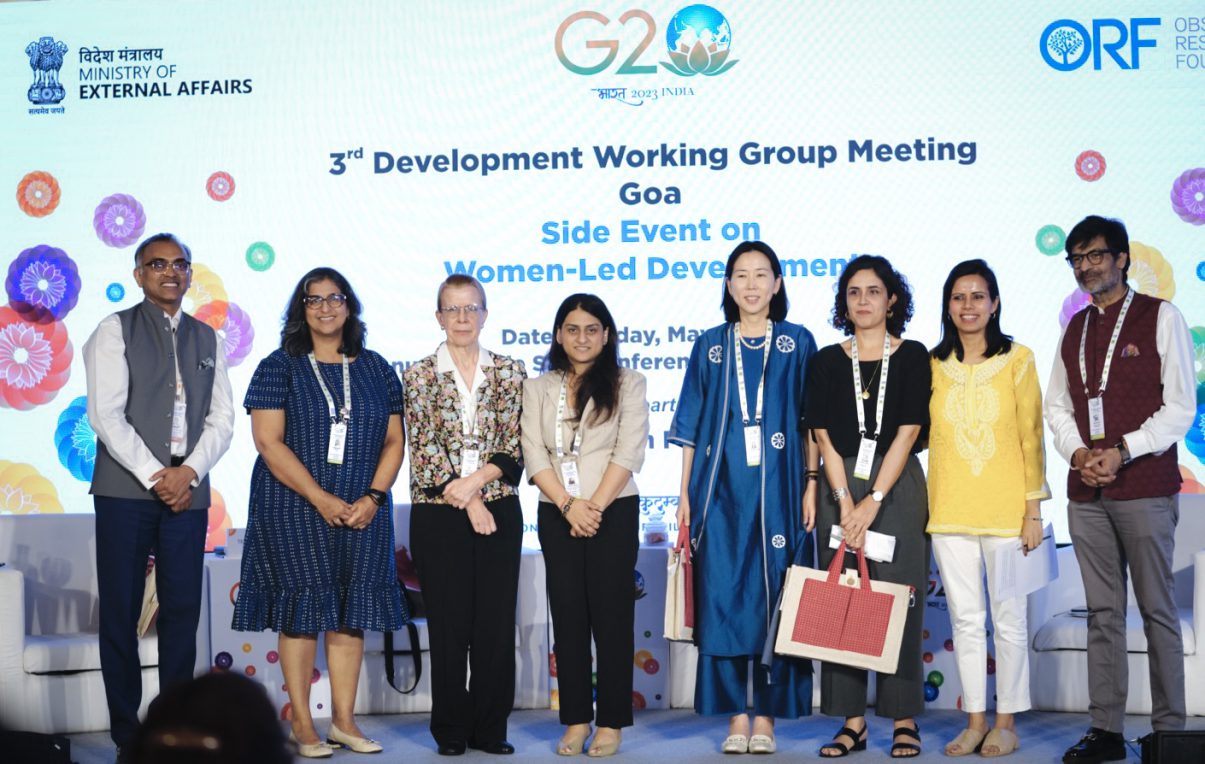The third Development Working Group (DWG) meeting under the India’s G20 Presidency, in Goa was preceded by a side event on Women-led development- a key priority in India’s G20 Presidency. The event was organized by the Ministry of External Affairs, Government of India and G20 Secretariat in partnership with Observer Research Foundation. It was structured to expand the discourse surrounding gender equality, encourage innovative thinking for a framework for the future and galvanise global commitments towards gender equality. Participants included experts from international organisations, academics, think tanks and civil society and DWG delegates.
The first session titled ‘Women and Economy: Emerging Sectors and the Future of Work’, explored the impact of digital transformation, upskilling and reskilling on gender equality. The context for the discussion was set by Ms. Debjani Ghosh, President, National Association of Software and Service Companies (NASSCOM) and Ms. Samantha Hung, Chief of Gender Equality Thematic Group, Asian Development Bank. The panel included Ms. María Fernanda Espinosa Garcés, Executive Director, GWL Voices, and Former President of the 73rd session of the General Assembly of the United Nations; Ms. Baratang Miya, Founder and CEO, Girlhype, Women Who Code; Ms. Susan Ferguson, Country Representative, UN Women and Ms. Kajal Ilmi, Founder, MD & CEO at Aviom India Housing Finance and was moderated by Ms. Charu Malhotra, Co-Founder, Primus Partners. Panellists discussed the importance of enabling access to education for girls and ensuring that women have full and equal share in economic, social, cultural and political decision-making. Equal access to STEM and digital skills education and addressing the burden of unpaid care work on women were identified as key levers of enabling women in the workforce in the era of digital transformation.
A spotlight session on ‘Women’s leadership in the Uniformed Services’ was organised which drew attention to the Indian Navy’s inclusion of women in diverse roles, including naval armament and aviation. The discussion focused on the gender-neutral nature of the Indian Navy including leadership, mentorship and support for female officers, adaptive workplace infrastructure and addressed the symbolism of their presence in the armed forces. The care responsibilities of female officers and the role of the family and community were also deliberated. Panellists in this lively debate included Commander Shazia Khan, representing women Medical Officers; Lieutenant Commander Swati Bhandari representing women in Naval aviation; Lieutenant Commander Tavishi Singh representing women as Naval Constructors; Lieutenant Commander Disha Amrith representing women leading the Naval contingent in India’s Republic Day parade; Lieutenant Commander Roopa and Lieutenant Commander Dilna. This session was moderated by Mr. Samir Saran, President, Observer Research Foundation.
The second session focused on Climate Resilience and Food Systems, emphasising the need to recognize the link between environmental sustainability, food security, and gender equality. It explored the role of women’s entrepreneurship, policy actions and financing for climate and food. Speakers of this session included Ms. Suranjali Tandon, Assistant Professor, National Institute of Public Finance and Policy, India; Ms. Vera Helena Thorstensen, Head, Center for Global Trade and Investment, Ms. Fundação Getúlio Vargas (FGV), Brazil; Ms. Temina Lalani Shariff, Regional Director, South Asia, Consultative Group on International Agricultural Research (CGIAR) and Ms. Hyun Hee Ban, Chief, Social Policy, UNICEF India. The panel was moderated by Ms. Sunaina Kumar, Senior Fellow, Observer Research Foundation.
